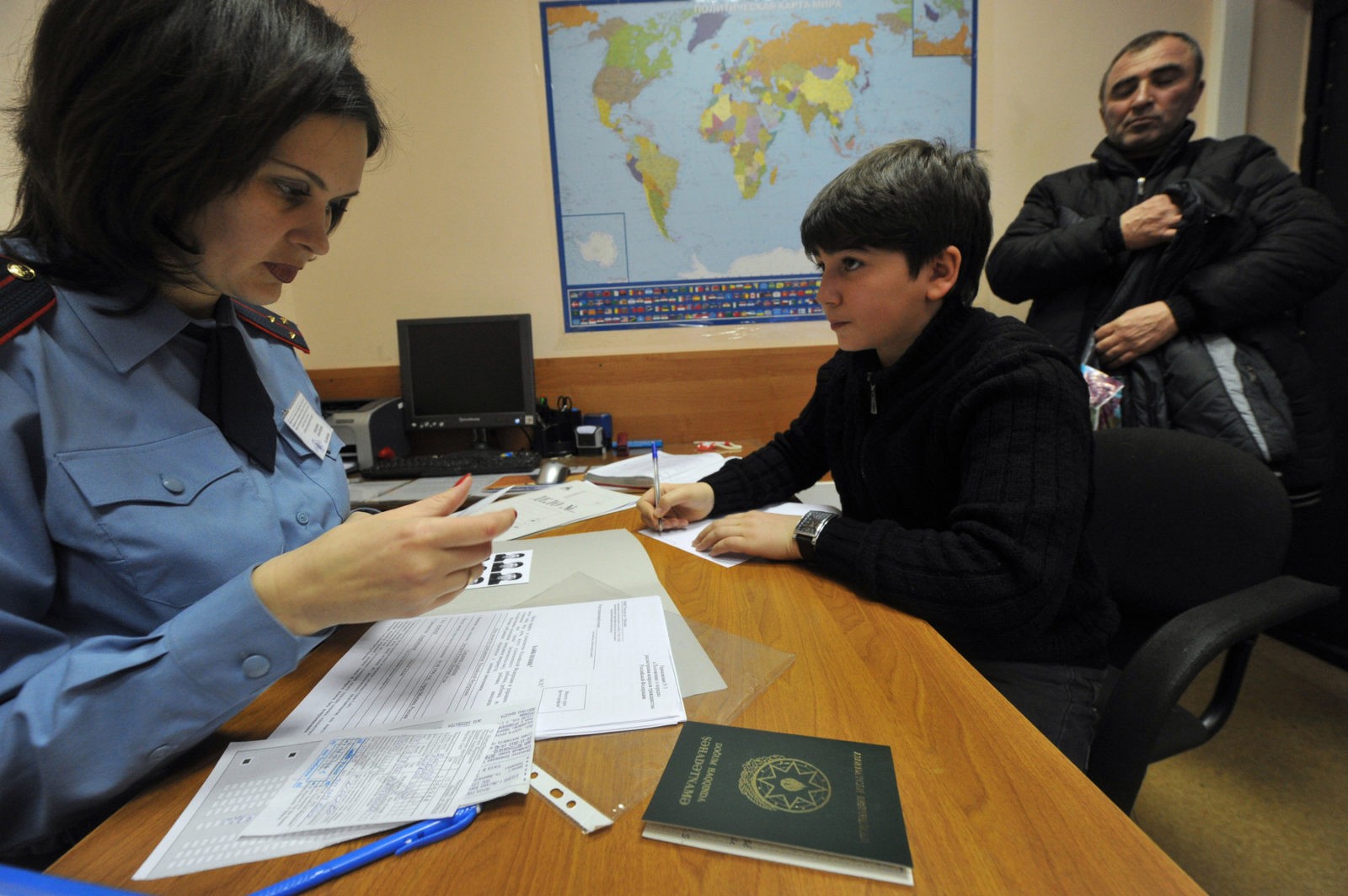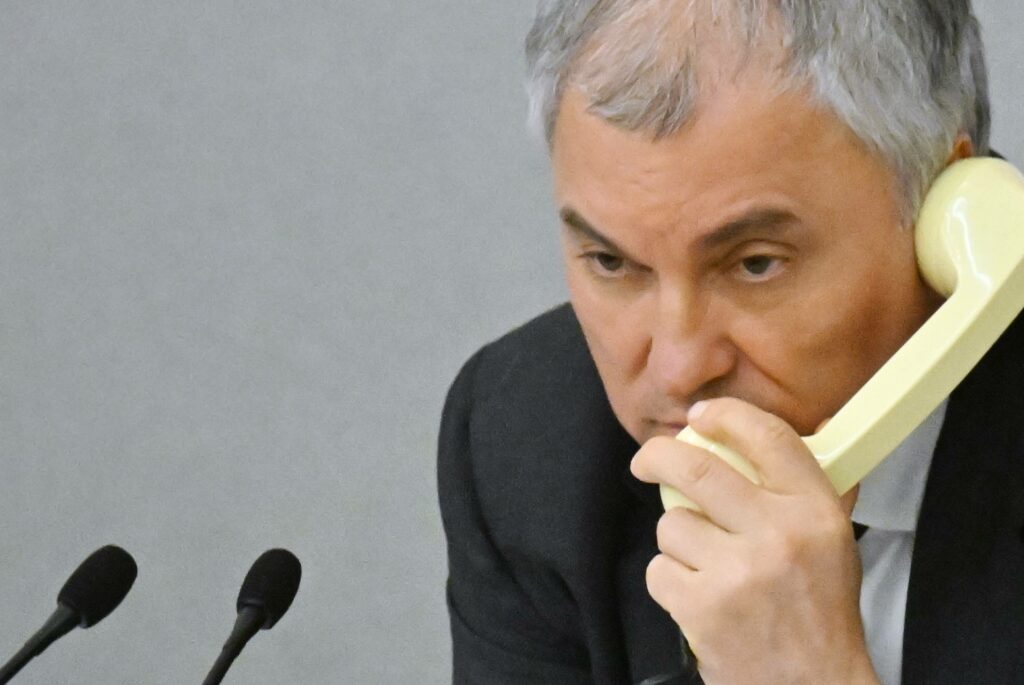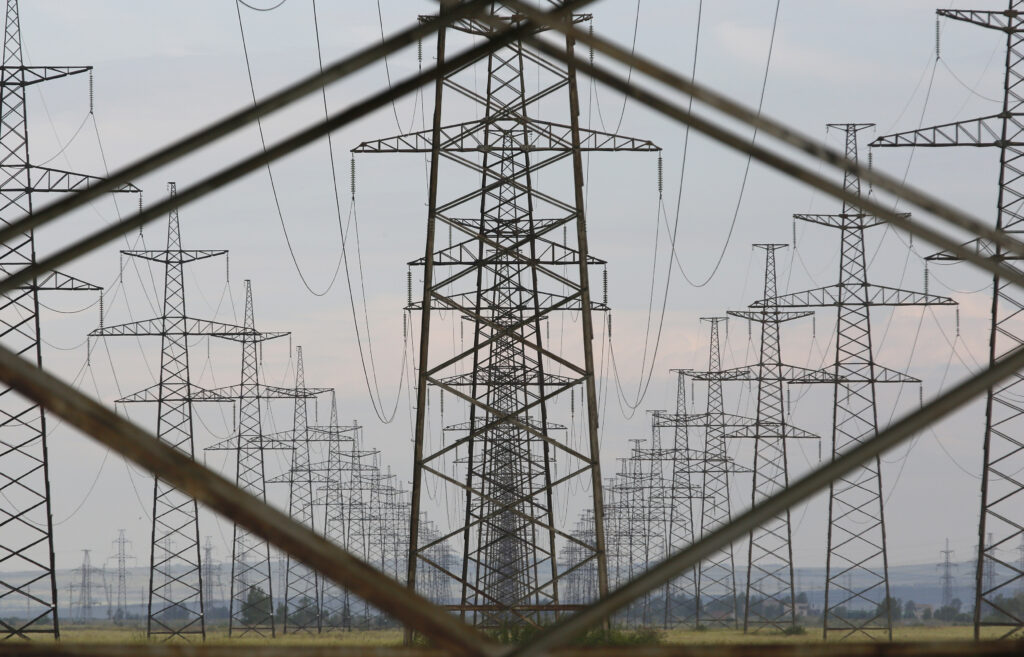Escalations in the armed conflict in the Syrian province of Idlib once again reignited public debate surrounding Russia’s role in the Syrian conflict. Despite having happily accepted the burden of providing military assistance to Bashar al-Assad’s regime, Moscow is far less willing to accept responsibility for the victims of the Syrian campaign. According to the Ministry of Internal Affairs, as of July 2019, only two Syrian citizens have refugee status in Russia, while 694 people have temporary asylum. Year after year, the number of refugees has been steadily decreasing, but this is not because Syria has become safer, but rather because Russian officials are putting more and more obstacles in refugees’ paths.
Running from war through an obstacle course
Although it cannot be said that Russia refuses to take in refugees outright, incoming refugees are divided into two camps: «ours» and «others». The former category includes residents of self-proclaimed republics in eastern Ukraine, who receive not only temporary asylum, but also Russian citizenship by the thousands. In 2018, 5822 citizens of Ukraine applied for temporary asylum status and almost all (5383) received it. As of July 2019, of the 61,948 people who had temporary asylum status in the Russian Federation, 60,093 were citizens of Ukraine. In mid-August, the Ministry of Internal Affairs reported that it had received more than 60’000 applications for citizenship from residents of Donbass, of which 25’000 were accepted.
The category of «others» encompasses everyone else, including the Syrians. They encounter obstacles at every stage before obtaining temporary asylum and the right to reside in Russia. Migration services take advantage of the fact that migrants from the Middle East are disoriented and unfamiliar with both the language and the intricacies of the Russian legal system, often refusing to register applications even though they are required to by law. The reasons for refusing applications can reach the point of absurdity — in May, it was reported that one refugee’s application was refused because he had not shaved off his beard.
The vast majority of victims of the Syrian war have not received refugee status in Russia. Since the military conflict began in 2011, Syrians filed 2585 applications for refugee status, out of which only one was granted. The second registered Syrian refugee in Russia received this status before the war even started. Russian law allows a person to be recognized as a refugee only if, in his homeland, they have faced persecution «on the basis of race, religion, citizenship, nationality, membership in a particular social group, or political persuasion». Syrians, as a rule, are not fleeing from personal persecution, but rather from a war that does not differentiate between nationalities or religions, but is dangerous to everyone. Therefore, in Russian territory they can only receive temporary asylum. Factually, this means protection from deportation for a period of one year.
While people with refugee status are legally guaranteed housing, food, and all kinds of state assistance (at least on paper), temporary asylum does not amount to any assistance other than allowing the person to legally live and work in Russia. Here lies the fundamental difference between the Russian asylum institution and the European one. For example, Germany, a country that is also reluctant to recognize Syrians as refugees, nevertheless provides them with accommodation in dormitories, food, medical care and an allowance of 350 euros per month, even while their application is still under consideration. And most importantly: even foreigners with temporary asylum can partake in free integration courses, including intensive German language classes. In Russia, however, state institutions for the integration of refugees are essentially nonexistent.
Analogues to European integration courses are only offered by human rights organizations, but due to funding constrictions, they cannot provide education to everyone who needs it. Russian NGOs like Faith. Hope. Love. and Health and Life help refugees and migrants, but these issues are not their main focus. Non-governmental organizations focusing solely on migration issues — such as Migration and Law and the Civic Assistance Committee — do not receive any state funding, which is to say that the Russian authorities do not even indirectly participate in solving the challenges faced by Syrian refugees.
Unease and unemployment
According to the UN, over 5.6 million people have left Syria since the start of the war. Most, about 3.3 million, now live in Turkey. Germany, which took on the brunt of the 2015 European migration crisis, hosts about 500,000 Syrians today. Russia, however, has not taken in even a hundredth of a percent of the total number of victims in the Syrian conflict.
Because integration programs are nonexistent, it is almost impossible for refugees from Syria to live independently in the Russian Federation. It is not surprising, then, that most Syrians who come to Russia as refugees already have links to the country in some way or another. Some studied here, some worked, others have relatives or friends who are able to help with finding employment.
Temporary asylum gives Syrians the right to work in Russia, but, according to Yevgeny Yastrebov, a consultant on migration issues at the Civic Assistance Committee, very few people are willing to hire Syrian citizens legally. Firstly, employers are dissuaded by the uncertain status of asylum seekers: temporary asylum is granted for a year with the possibility of extension, but this one-year period starts on the date when the application for asylum is filed, rather than on the date it is granted. The application review process can take up to four months, such that in fact, a person might only have asylum status for eight months. And it is not a given that an extension will be granted. Secondly, even if a Syrian has a university degree or professional training, employers might have doubts about their qualifications. In theory, Russia and Syria have an agreement for mutual recognition of higher education diplomas, however, in practice, even Syrians with medical, engineering, and teaching degrees say that in Russia, the only work they can find is either unskilled labor or work with NGOs that help refugees. Therefore, Syrians in Russia find themselves having to participate in the market of illegal and poorly paid labor, content with any money offered.
Most Syrians live near the capital, where it is easier to find work and get legal assistance from public organizations. Many are concentrated in the cities of Noginsk and Losino-Petrovsky near Moscow, because local industrial and agricultural companies have agreed to give them work. Interestingly, a number of Syrian citizens work at textile factories owned by their fellow countrymen who had moved to Russia long ago.
A foggy future for children
The situation of Syrian refugees in Russia is even more worrisome for children. Although they learn Russian quickly and can speak it almost fluently after a few years, the path to Russian comprehensive schools is often closed for them.
Two integration centers for Syrian children created by the Civic Assistance Committee have, until recently, been working in Noginsk and Losino-Petrovsky. Up to 40 students aged 6 to 14 years in each of the centers studied Russian and Arabic, mathematics and environmental science. The centers were tasked with preparing children to study in Russian schools. But while all the children at the Losino-Petrovsky center started going to a local comprehensive school on September 1, 2019, their Noginsk neighbors only managed to do the same after long negotiations with human rights activists. According to Valeria Pavlova, a spokeswoman for the Civic Assistance Committee, in previous years school directors in Noginsk did not accept them because they did not have a residence registration or because their parents did not have temporary asylum status, even though rejecting students on this basis is illegal. This year, the school leadership changed its mind, such that only children without a passport or birth certificate would be rejected.
However, Syrian children will find it more difficult to get into Russian schools in coming years. The center in Losino-Petrovsky was closed because of funding problems; for the same reasons, the Noginsk center is on the verge of closure too. NGO workers explained that some private donors left them, and they could not find new ones. For children living in Moscow oblast, this was the only opportunity to learn the Russian language for free, without which they will not be able to study alongside Russian children.
It is worth adding that Syrian children who were lucky enough to get into integration classes mostly want to study with their Russian peers, but they speak Arabic among themselves. Children who aren’t enrolled in a comprehensive school can become isolated in their community, lose their Russian language skills and lose their one chance to integrate into Russian society. Not to mention the fact that without education, Syrian children’s chances of a fulfilling future tend toward zero in both Russia and Syria.
Welcome to the exit
According to employees of the Civic Assistance Committee, the Syrians have recently been having more problems with extending their temporary asylum. This might explain why the number of Syrian citizens with this status in Russia fell from 1,128 to 826 last year, and over the first half of 2019, this figure continued to decrease to 694. In 2018, only about half (165 of 306) of Syrians who applied for temporary asylum eventually received it. In comparison, in 2014, migration services satisfied 95.4% of requests (1369 out of 1435) for temporary stay from citizens of the Arab Republic.
Having invested a lot of effort and money in the Syrian campaign, Moscow is eager to talk about its successes. In June, President Vladimir Putin said: «Real results in the fight against international terrorism have been achieved in Syria. The militant terrorist groups were defeated, largely thanks to Russia’s comprehensive assistance to the legitimate Syrian government.» He also repeated the statement heard from the Russian leadership since 2017 that ISIS has faced a complete defeat.
So if the campaign was a success, if ISIS is «officially defeated», Syria should no longer be unsafe, according to the logic of the Russian leadership. Otherwise, the paradox would be too obvious: Russia has invested billions of rubles in maintaining the regime of Bashar al-Assad, yet reports by the UN and think tanks still identify Syria as one of the most dangerous countries in the world.
It is difficult to know exactly how many Syrians left Russia last year voluntarily, and how many were forced to do so. If an asylum seeker without a temporary asylum status extension is stopped by the police, a court can sentence them to the Center for Temporary Detention of Foreign Citizens (TsVSIG) before being deported out of Russia. «Sometimes people spend up to two years there,» says Valeria Pavlova, spokeswoman for the Civic Assistance Committee. «Some people buy themselves a ticket and leave for their homeland. We have had cases where we appealed against decisions about someone’s placement in the TsVSIG and helped them re-apply for asylum. They were later released.»
Generous gestures that are widely publicized by the Russian authorities, like offering Russian passports to residents of the Donbass, are happening in tandem with the silent expulsion of other, less desirable refugees from the country. Human rights activists speculate that Russian migration services act as directed from above, and at the moment they are seemingly being directed not to give Syrians asylum. Most likely, Moscow fears that a large number of refugees from the Middle East in major cities could provoke popular unrest. And unlike the USSR, Russia places more importance on the «Russian world», while leaving the notion of «friendship of peoples» in the dust.










